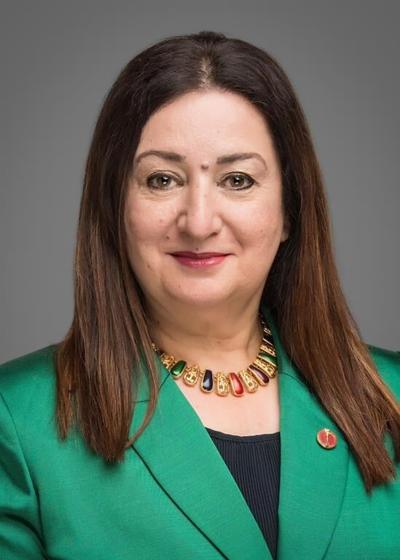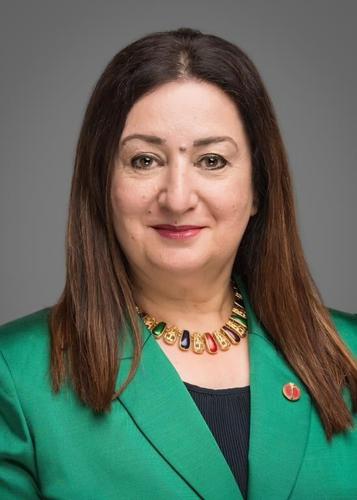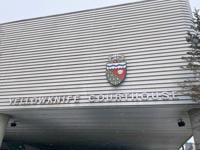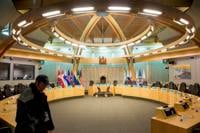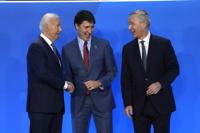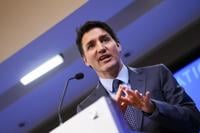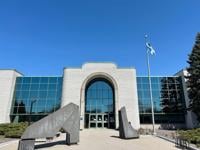TORONTO - Islamophobia and violence against Muslims is widespread and deeply entrenched in Canadian society, early findings from a Senate committee studying the issue indicate.
Muslim women who wear hijabs ã Black Muslim women in particular ã are the most vulnerable, and confronting Islamophobia in a variety of public spheres is difficult, the committee on human rights has found.
"Canada has a problem," committee chair Sen. Salma Ataullahjan said in a phone interview with üСÜꪤüýò¿Øéóæòêü.
"We are hearing of intergenerational trauma because young kids are witnessing this. Muslims are speaking out because there's so many attacks happening and they're so violent."
The problem is worse than current statistics suggest, Ataullahjan said.
Many Muslims across Canada live with constant fear of being targeted, especially if they have experienced an Islamophobic attack, witnessed one or lost a loved one to violence, the committee found.
"Some of these women were afraid to leave their homes and it became difficult for them to take their children to school. Many were spat on," Ataullahjan said. " Muslims have to look over their shoulder constantly."
Last month, figures released by Statistics Canada indicated police-reported hate crimes targeting Muslims increased by 71 per cent from 2020 to 2021. The rate of the crimes was eight incidents per 100,000 members of the Muslim population, based on census figures.
The Senate committee's work began in June 2022, about a year after four members of a Muslim family died after being run over by a pickup truck while out for an evening walk in London, Ont. A man is facing terror-related murder charges in their deaths.
The committee's senators, analysts, translators and other staff travelled to Vancouver, Edmonton, Quebec, and across the Greater Toronto Area to speak with Canadians who attend mosques, Muslims who were victims of attacks, teachers, doctors and security officials, among others.
The findings from those conversations are now being put together in a report, which the committee began drafting this week, Ataullahjan said.
The final version of the report ã set to be published in July ã is expected to include recommendations on what can be done to combat Islamophobia and how government can better support victims of attacks, she said.
Among the committee's findings is an observation that attacks against Muslims often appear to happen out on the streets and appear to be more violent than those targeting other religious groups, Ataullahjan said.
Analysts and experts interviewed by the Senate committee said the rise of far-right hate groups and anti-Muslim groups are among the factors driving attacks against Muslims, Ataullahjan said.
The committee looked at the cases of Black Muslim women in Edmonton who were violently assaulted in recent years.
"Some of them sat in front of us and everyone was getting teary-eyed because it's not easy to tell your story especially where you've been hurt," she said.
The 2017 shooting at a Quebec mosque when a gunman opened fire, killing six worshippers and injuring several others, is another example of violent Islamophobia, she said.
The Senate committee's report will also address recent violence against Muslims, including an alleged assault outside a Markham, Ont., mosque where witnesses told police a man tore up a Qur'an, yelled racial slurs, and tried to ram a car into congregants.
The committee will also detail day-to-day aggression against Muslim Canadians, including accounts from hijab-wearing girls in schools who don't feel comfortable reporting instances of Islamophobia to police, Ataullahjan said.
The üСÜꪤüýò¿Øéóæòêü Council of Canadian Muslims said the initial findings align with what it has been observing and trying to inform government leaders about for years.
"We're happy that this is being done," said spokesman Steven Zhou. "It's something that everyone everywhere needs to study up on. It's a worsening problem."
The council gets calls every day from Muslims across Canada detailing instances of Islamophobia, Zhou said, underscoring the need for action.
"People don't like to report these things," he said. "It takes a lot out of them to actually go to courts or talk to the police who might not understand exactly what they've gone through."
Zhou said he expects the committee will make recommendations similar to suggestions the council has already put forward, including changes to hate crime legislation, creating policies that would prevent hate groups from gathering near places of worship, and legislation to deal with online hate.
The üСÜꪤüýò¿Øéóæòêü Council of Muslim Canadians also hopes the report will help Canadians familiarize themselves with the Muslim community.
"We want to address hate," he said. "But also it's about building bridges. For people to learn about Islam, for people to learn about what this religion is actually about, how the community works."
This report by üСÜꪤüýò¿Øéóæòêü was first published April 19, 2023.
Note to readers: This is a corrected story. An earlier version had an incorrect date for when the Senate committee began studying Islamophobia.

